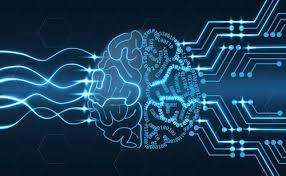1269Views

ARTIFICIAL INTELLIGENCE AND PSYCHOLOGY
Exploring the Intersection of Technology, Mental Health, and Student Life
Artificial Intelligence is gaining prominence and can be called the present and future of everything. The world is moving towards becoming a world of artificial intelligence. It refers to the simulation of human intelligence into machines to make them think and act like humans.
Psychology, on the other hand, studies the mind and behaviour of humans to understand their conscious and unconscious state of mind. Some time ago, psychology’s association was solely with humans helping and understanding humans, but in recent times, the field of psychology too is exploring the realm of Artificial Intelligence. The complexities of psychology and high-powered AI have gained force recently, especially among psychology students and young researchers in top PGDM and MBA colleges in India.
Psychotherapy helps patients gain control of their emotions and become calmer and more composed in dealing with emotional conflicts. It calls for one-on-one sessions for treatment. With Artificial Intelligence coming into the picture and gaining importance with the presence of information technology in daily life and student mental health, the introduction of specialized tools not only helps in altering but also accentuating their cognitive understanding. Emotions, creativity, sentiments, reasoning, and cognitive ability — in itself — is an array of human psychology. Students in business schools and psychology courses are increasingly exploring how AI can simulate emotional intelligence. The researchers, therefore, have a great deal to cover in this regard.
What should AI’s capability be?
It should be able to identify problems and provide sensible and humane solutions. Developing such solutions will require an ample amount of research on the mental processes of the human species. Therapeutic work employs techniques to trigger change. A combination of AI and psychology will help identify affective areas, construct genograms, determine the degree of differentiation of self, decode interaction patterns, and ultimately foster self-awareness. Research in AI is also gaining clinical relevance for therapeutic applications in mental health services.
With innovations like ‘virtual psychotherapists’ and social robots used in dementia and autism care, artificial agents—both virtual and robotic—are beginning to supplement therapeutic interventions once handled only by skilled professionals. Students living on campus or studying mental health as part of their coursework can now explore AI tools as part of academic projects, interdisciplinary research, or internship assignments.
VBS: A Space to Explore AI & Human Psychology Together
Being a student at Vivekanand Business School, Mumbai, I’ve witnessed how technology, psychology, and business come together meaningfully. The Vivekanand PGDM Business Analytics specialization equips students with advanced data tools, AI applications, and practical problem-solving frameworks. Whether you’re pursuing Vivekanand PGDM Marketing, Finance, or Human Resources, exposure to analytics enables you to explore the cross-section of technology and human behavior.
At VBS, experiential learning is at the core of the academic experience. From innovation-driven coursework to live projects, students are encouraged to delve into real-world problems—just like how AI can be applied to improve mental health outcomes. The environment here nurtures curious minds who wish to go beyond traditional management education and venture into emerging fields like AI-integrated psychology. No wonder VBS is often ranked among the best PGDM colleges in Mumbai for its future-forward curriculum and industry-aligned approach.
AI and Ethics: A Balancing Act
From an ethical perspective, the benefits of AI applications in mental health include new ways of treatment, engaging more people, and improved responsiveness. However, some concerns remain—such as the lack of clear guidelines in developing AI tools, risks of misuse, and the need to protect patient autonomy. There are also questions about long-term implications on how we understand human psychology when therapy is delivered by non-human agents.
Conclusion
The use of AI in psychology is a propitious approach that holds great promise in opening new avenues in both fields. However, to make the most of it, more targeted research and development are needed to bridge the existing gaps. As a student of Vivekanand PGDM, I believe tech-driven institutions like VBS create the perfect space for these explorations—where business, technology, and human understanding go hand in hand to shape the future.
Anjali Nair
PGDM Batch 2020-2022
Vivekanand Business School
